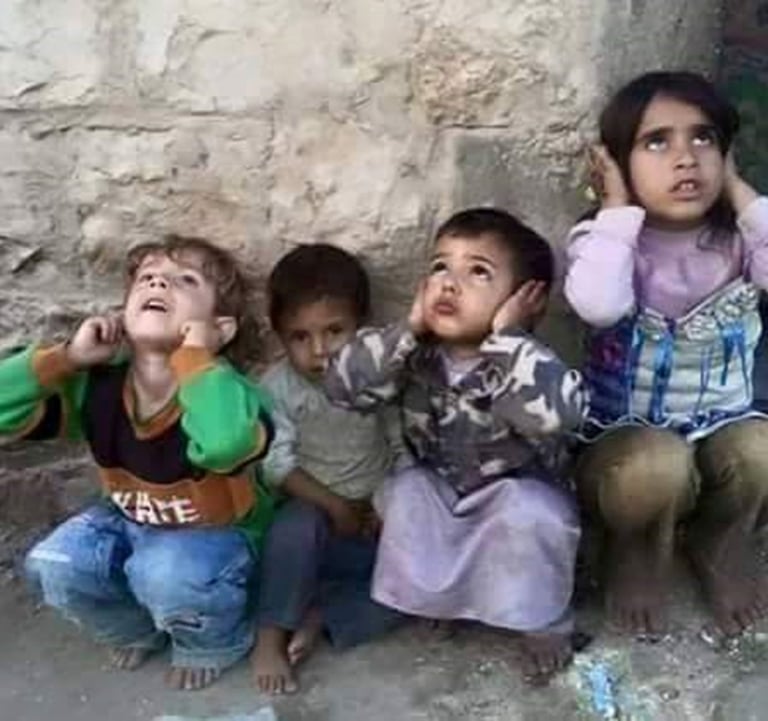The Real Problem with the Murder of Jamal Khashoggi
Nov 4, 2018
A Question of Style
The current events in Istanbul say nothing at all about the medieval regime in Saudi Arabia we didn’t already know. That would be hard to guess, given the uproar in media and government about the murder of Jamal Khashoggi, a furore that tells us a lot more about our western media, our politicians and us than it does about Saudi Arabia.
It must have taken considerable depth of perception for anyone to discern Mohammed bin Salman's passion for reform of more than his fiefdom’s image, though there seems to be not a few such sharp characters around, including the inevitable Thomas Friedman, New York Times’ Middle East Expert, who observes a “significant reform process” and even a Saudi “Arab Spring”; and a notable slim customer called Emmanuel Macron who defended his Altitude bin Salman last April while securing deals for French companies worth $18 billion. It has to be admitted they have something of a point as bin Salman has been taking progressive strides towards the 22nd century, in permitting the building of cinemas and in allowing women to drive (while understandably imprisoning miscreant women's rights activists who made the mistake of demanding the privilege before he pioneered it).
However, something more important has now happened – a death that matters – and there’s a big fuss about Khashoggi, hyped in the western media as a critical journalist and democracy lover, but in reality a propagandist for a repressive regime with a few polite reservations about how to keep the dynasty going.
In the eyes of the “International Community” Saudi Arabia seems to have crossed some kind of line in murdering a ‘regime critic’ in broad daylight. Just where the moral line is for that chimerical adjudicator and for western pundits and politicians in general is hard to discern, given its shifting, or better, shifty nature, its whereabouts depending on business rather than on any outlandish ethical imperatives. Or on perceived affronts to western supremacy: Khashoggi wrote for the Washington Post, never failing to suck up to US foreign policy.
Beyond the line for ordinary human beings still in touch with their moral sense is the act of murder and the aiding and abetting thereof, meaning anybody who murders anybody is guilty of murder. That crime does include hiring a pathologist to cut up somebody who gets on your nerves, even if they’ve caused your paranoia to escalate out of its comfort zone, so on that point the International Community have got it spot on.
Nevertheless it’s a pity that Khashoggi forced bin Salman’s hand. Now all the Prince’s efforts to drag the Saudi Arabian Royal Family out of the eleventh century to join western leaders in the twelfth may have been brought into disrepute.
It's embarrassing too, notably for the US senators who voted 71-27 against blocking Obama’s offer of a $115 billion arms sale to Saudi Arabia in 2016, the biggest in the decades-long US-Saudi alliance; though seemingly not for the current president who doesn’t do embarrassment and continues to defend the alliance. At least he says openly it’s about the money (having claimed the credit himself for Obama’s deal). It’s also disappointing for the UK Conservative party which hosted the 2017 Arms Fair in London, Saudi Arabia being the UK’s biggest arms customer; and particularly for Theresa May who visited Saudi Arabia in November 2017, declaring her visit to be part of a “bold, confident future” for the UK after Brexit.
A footnote to the really important matters has been the slaughter of Yemeni civilians by our Saudi friends which has taken three years to get serious media attention, now after reports by the UN, Human Rights Watch and Amnesty International on what Amnesty called the “forgotten war”. For the western media these have been insignificant deaths crossing no moral line. Thousands of Yemeni civilians have been killed in indiscriminate bombing and their lives threatened by famine resulting from the war and the bombing of food supplies by Saudi forces in a coalition of nine countries, backed and actively assisted by the US and UK. Obama authorized 37 drone attacks on Yemenis in 2016. Taking a leaf out of his predecessor’s book Trump had added 105 more by October 2017.
Equally non-newsworthy has been western complicity in the slaughter through weapons supplied by Canada, UK, France, Germany, Italy and others, and the continuing effects of the endearingly named ‘bomblets’ scattered by US and UK-supplied cluster munitions. In 2016 the UK government blocked an inquiry into the war in Yemen.
In western capitals the question of aiding and abetting war crimes has been an issue lost in a fog. The best explanation for US direct military involvement in Yemen that can be fathomed out of the murk seems to be that - when Obama started it he wanted to reassure the Saudis that they needn’t worry about his deal with Iran, that they (the Saudis) were still his friends and he was willing to prove it by supporting them in a war against the Houthis in Yemen who the Saudis believed wrongly to be fighting a proxy war on behalf of Iran against the Yemeni government it being in reality a more or less purely local affair and Saudi involvement would actually strengthen Iran’s influence, the opposite of what Saudi Arabia wanted, which Obama being a lawyer could or may have thought through but probably hadn’t.
This kind of mental fog can hide anything and certainly has been successful in helping to hide US war crimes. What the eye doesn’t see can’t be a problem. It has also helped to hide US government intentions in Yemen from the media (not difficult), from nearly everyone else, and (only slightly more difficult) from itself…unless we take the one consistent strand in all this: the continuing sale of arms to Saudi Arabia. If Saudi Arabia’s war against the Houthis was likely to strengthen the (small) Iranian presence there, that might prolong the war and make the Saudis more persistent thus making their acceptance of the $115 billion arms deal offer more likely.
The real problems start to arise when the trompe l’oeil ceases to work and there’s too much clarity. They did arise with the Khashoggi murder and they seem to be twofold.
First, Khashoggi was a member of the western establishment, an accepted hobnobber. You can’t just go and so obviously bump somebody off who frequents the best restaurants in Washington and is seen with some of the finest people.
The emergence of the second problem reveals how essential questions of taste or style really are; there are kinds of things one doesn’t do, stylistic lines one really doesn’t cross. We don’t hire a pathologist to saw people up almost in full public view and we can’t be seen to associate with people who do that kind of thing. Bin Salman has really gone too far and has made it very difficult to find a solution that might save face all round.
As Thomas Friedman put it in the New York Times it’s “an unfathomable violation of norms of human decency, worse not in numbers but in principle than even the Yemen war”. Friedman always did have a knack for capturing nuance, an intuitive sensibility for stylistic niceties.
If only Saudi Arabia had a Thomas Friedman.




